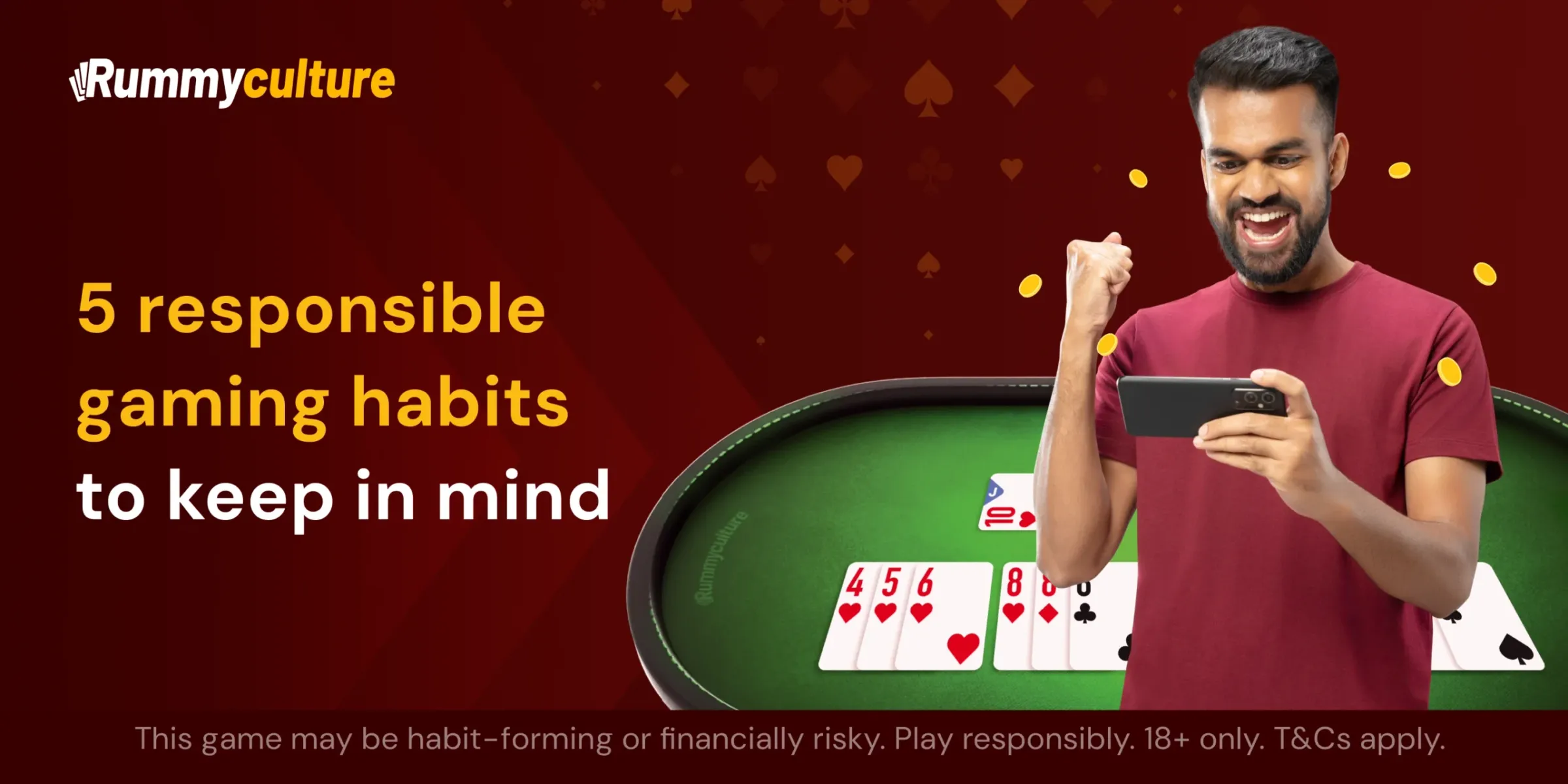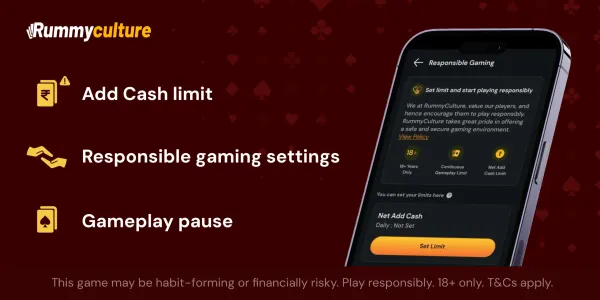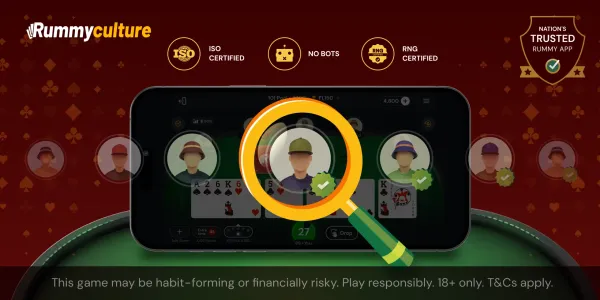- Home
- Player Support
- The ultimate guide to responsible gaming
The ultimate guide to responsible gaming
Developing responsible gaming habits is key to a safe and enjoyable experience. Follow these 5 essential tips to stay in control and play responsibly.
RummyCulture Elite Editors | 27th Mar, 2025

Five responsible gaming habits for a safe gaming experience
Gaming should always be an enjoyable and fair experience. Responsible gaming ensures that players engage in online gaming in a healthy, controlled manner while promoting fairness, transparency, and player protection.
One of the key principles of responsible gaming is setting personal limits on both time and money spent. Without these boundaries, gaming can quickly shift from entertainment to financial or emotional distress. Many gaming platforms like RummyCulture now offer ways to help players self-regulate their habits, ensuring a balanced and controlled approach to their online rummy experience.
Practical tips to set gaming limits
To maintain a healthy gaming balance, players must set clear limits on their gameplay. Here are some practical ways to establish these boundaries:
- Use platform tools – Many gaming platforms offer features to set deposit limits, loss thresholds, and playtime restrictions. Utilize these tools to prevent overspending.
- Stick to a budget – Decide how much money you’re willing to spend on gaming before you start playing and never exceed this amount.
- Set Time Restrictions – Allocate a specific number of hours per week for gaming and stick to it.
- View online rummy as entertainment – Treat gaming as a fun activity, not a way to make money or solve financial problems.
By taking these steps, players can enjoy gaming responsibly without negatively impacting their financial or emotional well-being.
Balancing gaming with life responsibilities
While gaming is a great pastime, it’s crucial to maintain a healthy work-life-gaming balance. Prioritizing responsibilities ensures that gaming remains a leisure activity rather than a disruptive habit.
Here are a few pointers that will help you develop responsible gaming habits:
- Create a daily schedule – Dedicate time for work, studies, exercise, and social interactions before allocating time to gaming.
- Use a checklist – Keep track of daily tasks to ensure gaming doesn’t interfere with essential responsibilities.
- Prioritize real-world interactions – Engage with family and friends outside the gaming world to maintain strong relationships.
- Avoid playing during important tasks – Gaming should never take precedence over work, studies, or personal commitments.
A structured approach helps maintain healthy habits while still allowing time for enjoying your favourite game.
Recognizing gaming as an escape mechanism
Many players turn to gaming as a way to escape stress, anxiety, or exhaustion. While occasional gaming is fine, using it as a primary coping mechanism can lead to unhealthy habits.
Alternative stress-relief methods:
- Physical Activity – Exercise releases endorphins and reduces stress more effectively than extended gaming sessions.
- Meditation and mindfulness – Practicing mindfulness helps improve focus and emotional control.
- Talking to friends or family – Social interactions provide emotional support and prevent isolation.
- Maintaining good sleep hygiene – Lack of sleep affects cognitive function and decision-making, leading to poor gaming performance.
Being mindful of why you’re gaming helps you stay in control and maintain a healthy relationship with the activity.
Self-awareness and monitoring gaming habits
Regularly assessing responsible gaming habits is key to ensuring a long-term plan. Self-awareness helps players recognize patterns that might indicate unhealthy gaming behavior.
Here are a few ways you can monitor your gaming habits:
- Keep a gaming journal – Track time spent playing and note how you feel before and after each session.
- Use self-monitoring apps – Many apps help track screen time and gaming hours. If you don’t want to download another app, then simply setting an alarm can also help to keep your gaming time in check.
- Set check-in points – Ask a friend or family member to help you stay accountable for your gaming habits.
- Practice mindfulness – Being conscious of when and why you’re playing can prevent excessive gaming.
Regular self-reflection ensures that gaming remains a fun and controlled activity rather than a compulsive one.
Building long-term responsible gaming habits
Responsible gaming isn’t about avoiding gaming altogether but about developing healthy gaming habits that are sustainable. The key to responsible gaming habits is consistency and self-discipline.
Let’s recap and look at a few important points around responsible gaming:
- Set Limits on time and spending – Use platform tools to manage gameplay hours and deposits.
- Balance gaming with life – Prioritize work, studies, and personal interactions.
- Be mindful of gaming motives – Don’t use gaming as a primary escape mechanism.
- Monitor and reflect – Track gaming habits to recognize unhealthy patterns.
- Seek support when needed – If gaming begins to feel overwhelming, reach out to responsible gaming organizations.
By making small, consistent improvements, players can ensure that gaming remains an enjoyable and positive experience. Responsible gaming leads to better decisions, improved well-being, and a longer-lasting love for the game.
If you’re a fan of rummy games, download the RummyCulture app today! It’s one of India’s most popular and fastest-growing rummy platforms.
Featured articles









